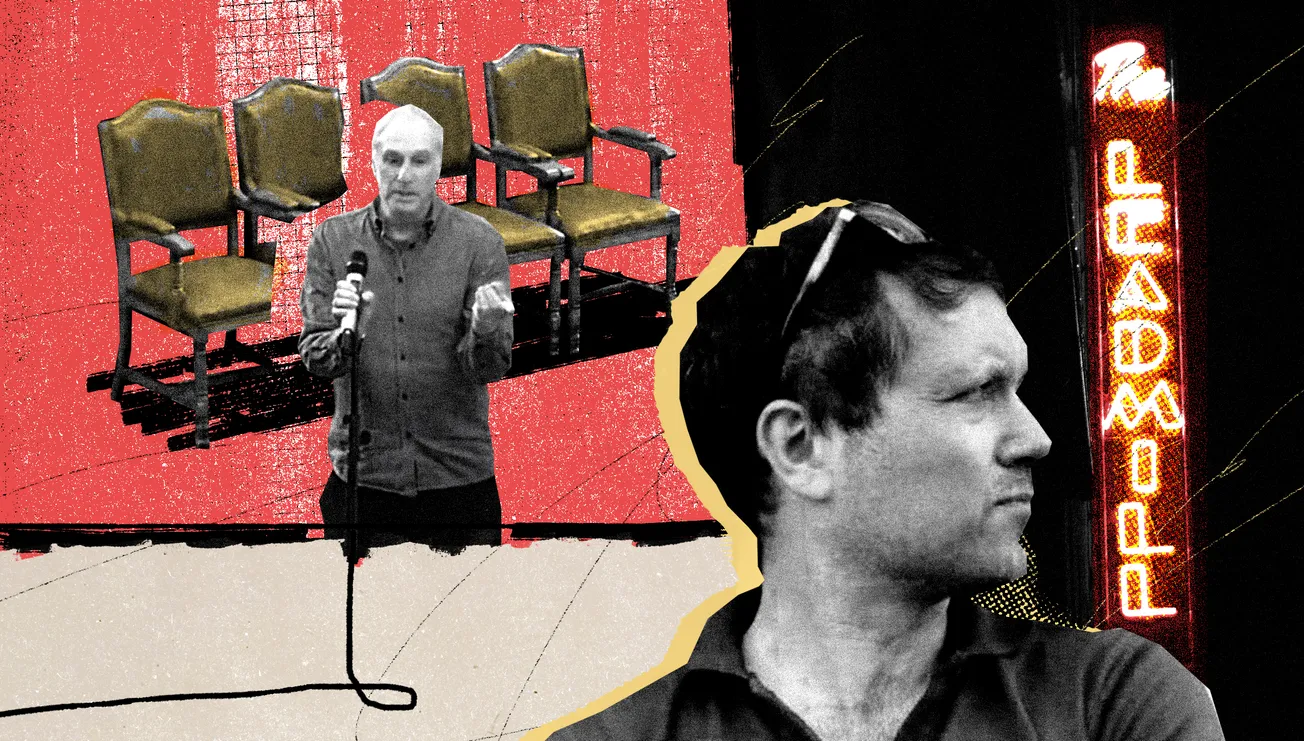The warnings have been sounding for some time now. First it was Birmingham, the largest local authority in Europe. In September last year, it issued a “Section 114” notice, essentially declaring itself bankrupt. Two months later, Nottingham went down the same path. By December, the Institute for Government think tank wasn’t mincing its words: “The latest councils to issue “bankruptcy” notices are unlikely to be the last.”
Inevitably, people started to wonder: could Sheffield, another large local authority with big bills to pay on expensive social issues, find itself in the same position?
When we interviewed the city’s council leader Tom Hunt just before Christmas, we asked whether the authority might be forced into issuing a similar notice. His response was unequivocal: “We’re not”.
That confidence initially seemed well placed. In March this year the council announced it was “able to set a balanced budget for 2024/25” — something all councils are required to do by law. Many allowed themselves to hope the city would be spared.
But a paper sent to the Finance and Performance Policy Committee this week has raised urgent questions.
The balanced budget of March is in tatters. The Council now expects spending to run over by £34m this financial year. A special reserve that was set up to cope with “overspends” had already been run down — and this year will be almost completely depleted.
The council maintains that there will be no bankruptcy order issued this financial year. But our review of the figures suggests that pain delayed may just be pain deferred. Council officers don’t seem to share Hunt’s confidence that bankruptcy is definitely off the table over the next couple of years. Today’s story asks: just how bad is it?
If you know more about this story, please get in touch at editor@sheffieldtribune.co.uk. We treat all information confidentially and are always happy to speak off the record.
Editor’s note: A press release put out on SheffNews, a city council website, has done its best to put a broadly positive spin on a worrying situation. It reads: “The short-term picture remains largely unchanged, and the council’s reserves are able to cover budgeting gaps for this financial year.” You’d be forgiven for thinking there wasn’t much of a story here. But we’ve spent time scouring the figures and that couldn’t be further from the truth.
We believe Sheffield’s citizens need to understand the situation their council is in. Times like this show why it really matters to have independent journalism scrutinising what’s going on. To support us — and to read today’s story — click below.
Your Tribune briefing
🦌 A stag that was running wild in south Sheffield has been shot dead by police. On Monday, the animal was seen at several locations around Greenhill, Jordanthorpe and Batemoor, including in the grounds of a primary school. Police said the decision was taken to “humanely dispatch the animal out of view of the public” due to the ongoing danger to members of the public. Using a tranquiliser had been considered, but was not thought to be the safest option, they added. David Bocking’s excellent recent piece about Sheffield’s deer is here.
🏡 Our recent report about Green Bridge Community Housing has been picked up by Ecclesall councillor Barbara Masters, who asked a question about the firm at last week’s Full Council meeting. Councillor Masters submitted a series of written questions about the amount the council had paid to Green Bridge, how many other providers of exempt accommodation receive housing benefit payment from the council, and what powers does the council have in ensuring that the quality of provision is suitable for the vulnerable tenants. The full list of questions and answers can be found here (pages 7 and 14) while Councillor Masters’ follow up questions can be viewed on the webcast.
✈️ Following our report about the reopening of Doncaster Sheffield Airport on Monday, on Tuesday South Yorkshire’s leaders approved a further £3m of funding for South Yorkshire Airport City, a 10-year plan to use a reopened DSA to drive economic growth in the wider region. But at the same time a sustainable development research centre based at the University of Sheffield has said that in a time of climate crisis, airport expansion is unjustifiable. “Air travel is inherently inequitable. The benefits are for the few, the harms borne by the many,” wrote the Grantham Centre on their Green Watch blog. “At this time the economic case for public subsidy of this project has not been made satisfactorily.”
How close is Sheffield Council to bankruptcy?
By Daniel Timms. Additional reporting by Dan Hayes and Victoria Munro
Through the veil of the usual management-speak, the very first paragraph of the council’s report makes clear its finances are in a precarious state.
“Sheffield City Council is currently facing significant financial difficulties due to increased service demands, rising costs, and reduced funding”, it begins. It then describes a projected “overspend” of £34m this year, largely due to higher than expected costs in education, homelessness and adult social care. Balancing this year’s budget will require dipping into the council’s “reserves” — essentially its savings — and even then “the financial outlook remains challenging”.
“Overspends” are now common in Sheffield — the Council has run them for the last three years. Each time, they have dipped into the reserves to make ends meet.

But of course, you can’t keep doing this forever. 2024/25 is looking much worse than previous overspends. And the next line in the report is the most alarming: “While the Council can temporarily avoid issuing a section 114 notice by utilising reserves to balance this year’s budget, the financial outlook remains challenging.”
Whisper the words “Section 114” in the darkened bedroom of any council chief executive and they’re likely to jolt awake in a cold sweat. These notices are to local councils what a declaration of bankruptcy is to you or I. Both Birmingham and Nottingham councils have issued them in recent years, as well as quite a few smaller councils.
The implications are grim: councils are often taken over by government commissioners, with cuts to all but the essential services they are legally required to provide. In Birmingham, local arts funding is being cut to zero, an axe has been taken to social care funding, council fees have increased by up to 50%, and there is talk of selling off vital community assets.
The language used — “temporarily avoid” — seems to suggest it is only a matter of time before the inevitable happens, and such a notice is published here in Sheffield. How worried should we be?

Comments
Sign in or become a Sheffield Tribune member to leave comments. To add your photo, click here to create a profile on Gravatar.







